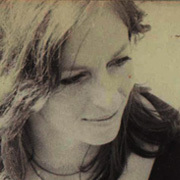
Nevan Rowe
Born in Dunedin, Nevan Rowe grew up in the South Otago town of Kaitangata. She began her screen career as a television reporter on the Dunedin editon of magazine show Town and Around. She also acted: touring a satirical theatre show down south with David McPhail and Derek Payne, and performing at Dunedin’s Globe Theatre. When the NZBC was restructured in 1975 she moved north to Auckland to work on talk show Speakeasy, but ended up joining Roger Donaldson’s production company Aardvark Films instead.
After working on commercials and documentaries, Donaldson (along with collaborator Ian Mune) was making moves into drama, and winning international sales in the process. At Aardvark Rowe worked in a range of roles, and led the casting for Donaldson’s landmark first movie Sleeping Dogs (1977). Rowe had been picked to play the role of Gloria, caught between the film's hero Smith (Sam Neill) and his friend Bullen (Mune). As a result she would appear in one of the best remembered sequences of the Kiwi film renaissance: a scene where Gloria and Bullen get caught in a violent stoush involving riot police, which was later eerily echoed during the 1981 Springbok Tour protests.
During the film's making, Rowe spoke of the responsibility of doing a good job. "The movie has to be pretty good, otherwise it'll be hard to make another one."
Rowe tracked down and persuaded Hollywood actor Warren Oates to play rogue rebel leader Colonel Willoughby, a coup that may have played its part in the film selling to multiple territories. Vietnam veteran Oates was known for roles in The Wild Bunch and Bring Me the Head of Alfredo Garcia. Rowe told the New Zealand Women's Weekly in 1977 that she got a list of Los Angeles agents from a friend, who was working in Hollywood. By a stroke of luck the first number she rang was Oates’ agent, who had recently visited New Zealand, and found it "great". Accordingly he encouraged Oates to "come out here for a sort of working holiday".
Rowe described acting as her "first love". Before acting in Sleeping Dogs, she had already appeared in well-received 1976 TV play The Park Terrace Murder — inspired by the 1871 murder of a cook who worked for Canterbury landowner William Robinson — and Dagg Day Afternoon, a short film built around Fred Dagg. In this period she also worked on, and appeared in, episodes of Aardvark anthology series Winners & Losers, New Zealand's first primetime drama made by an independent company. In this episode, she plays a barmaid tricked out of a drink by a legendary vagabond.
Rowe reflected to the Women’s Weekly on the challenges of forging a sustainable living as an actor in New Zealand’s young industry: "I count myself very fortunate to be able to work in the general atmosphere of film production. If I didn’t have this job [at Aardvark] I would be forced into taking such work as modelling and making TV commercials."
Sleeping Dogs heralded the arrival of a long line of local features, arriving close to 1977 Oscar-nominee Off the Edge, and launched the careers of director Donaldson and actor Sam Neill. In the publicity material for the film, Rowe argued that "apart from the entertainment factor it’s a movie that deals with social issues. Sleeping Dogs is about the state interfering with people’s rights, it strikes me that that’s an important issue."
Inbetween Sleeping Dogs and acclaimed feature Smash Palace (1981), Donaldson directed a less well-known film, madcap children's adventure Nutcase (1980). Rowe camped it up in in a starring role as deranged scientist Evil Eva, who holds Auckland to ransom by threatening to detonate a nuclear device beneath Rangitoto.
Over the next decade Rowe worked mainly offscreen, taking on production manager and casting roles over a variety of productions, from Hamish Keith-written series Treasures of the Land to Stewart Main’s Race Against Time, a documentary about racism. She also worked on many commercials.
In 1989 Rowe showed her untapped talent as a director, when she helmed comedic short Gordon Bennett. Her all-star Kiwi cast was fronted by Andy Anderson, in hilarious form as a gormless interloper who causes mayhem at a concrete laying company. Based on a story by Tim Shadbolt, the short was selected for the London Film Festival, plus festivals in Seattle and Oporto (Portugal).
For a number of years Rowe divided her year between work in Los Angeles, at a cosmetics company, and a low tech, back to nature lifestyle in Piha, north of Auckland.
After Rowe's passing in mid-April 2016, long time friend Roy Colbert recalled their long friendship in the Otago Daily Times. Wrote Colbert: "Small girl, big voice, big laugh, and big eyes that saw right through everything."
Profile updated on 12 March 2020
Sources include
Roy Colbert, 'Farewell, Nevan, and thanks' - The Otago Daily Times, 17 May 2016
Trisha Dunleavy, Ourselves in Primetime - A History of New Zealand Television Drama (Auckland University Press, 2005)
Audrey Gordon, 'She Captured A Hollywood Star!' (Interview) - The New Zealand Women's Weekly, 4 July 1977, page 8
Helen Martin and Sam Edwards, New Zealand Film 1912 - 1986 (Auckland: Oxford University Press, 1977)
Ian Mune, Mune: An Autobiography (Nelson: Craig Potton Publishing, 2010)
Sleeping Dogs press kit
'Gordon Bennett' New Zealand Film Commission website. Accessed 3 May 2016. Loaded 3 May 2016
The Making of Sleeping Dogs (Documentary) Director John Reid